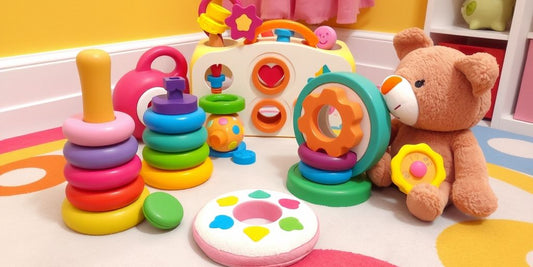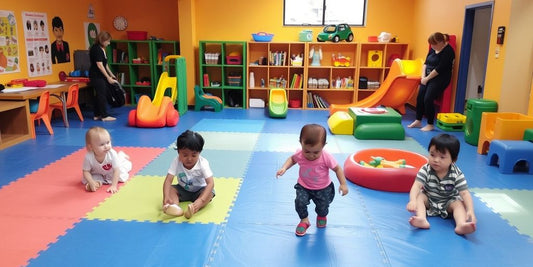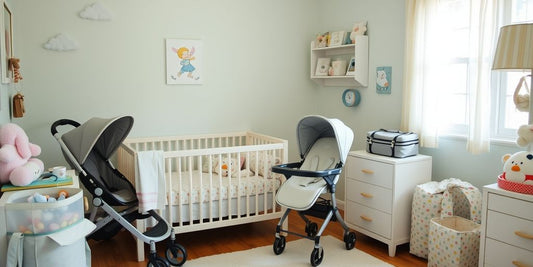Transitioning from pregnancy to motherhood is a monumental journey filled with many changes and emotions. This period, often called matrescence, is a time of growth and discovery. It reshapes your identity and brings new responsibilities. Understanding and preparing for these changes can help you navigate this journey more smoothly.
Key Takeaways
- Acknowledge and embrace the emotional ups and downs that come with motherhood.
- Take care of your physical health with proper nutrition, exercise, and postpartum recovery tips.
- Build a strong support system by communicating with your partner, family, and friends.
- Understand that it's normal to experience shifts in your identity and find ways to balance your new roles.
- Seek help for mental health when needed and practice mindfulness to maintain well-being.
Embracing the Emotional Rollercoaster

Understanding Hormonal Changes
Pregnancy brings about significant hormonal shifts that can affect your mood and energy levels. These changes are natural and help prepare your body for childbirth. However, they can also lead to emotional ups and downs. Understanding these hormonal changes can help you manage your emotions better.
Managing Stress and Anxiety
The journey to motherhood is filled with both anxiety and bliss. It's normal to feel stressed or anxious as you prepare for your new role. Here are some tips to manage stress and anxiety:
- Practice deep breathing exercises.
- Engage in light physical activities like walking.
- Talk to a trusted friend or family member.
Finding Joy Amidst Challenges
Amidst the challenges of new motherhood, it's important to find moments of joy. Focus on the small, positive experiences, like your baby's first smile or a quiet moment of peace. These moments can help you stay positive and resilient.
Embrace the small moments of joy, as they can provide comfort and strength during challenging times.
Physical Changes and Self-Care
The transition from pregnancy to motherhood brings about significant physical changes. It's essential to prioritize self-care during this period to ensure a smooth recovery and maintain overall well-being.
Postpartum Recovery Tips
After giving birth, your body undergoes numerous changes as it heals. Rest is crucial during this time. Make sure to get plenty of sleep and take naps when your baby sleeps. Gentle exercises, like walking, can aid in recovery. Remember, it's important to listen to your body and not rush the healing process.
Nutritional Needs for New Mothers
Eating a balanced diet is vital for new mothers. Focus on consuming a variety of fruits, vegetables, whole grains, and lean proteins. Staying hydrated is equally important. Drinking plenty of water can help with recovery and breastfeeding. Consider consulting a nutritionist to create a meal plan that meets your specific needs.
Exercise and Physical Activity
Engaging in physical activity can boost your mood and energy levels. Start with light exercises and gradually increase the intensity as you feel more comfortable. Activities like yoga or swimming can be particularly beneficial. Always consult with your healthcare provider before starting any new exercise routine.
Embrace the changes in your body and give yourself time to heal. It's okay to take things slow and focus on your well-being.
By prioritizing self-care and understanding the physical changes that come with motherhood, you can navigate this transition more smoothly and enjoy the journey ahead.
Building a Support System
Communicating with Your Partner
Open and honest communication with your partner is vital. Discuss your needs and feelings, and work together to find solutions that help both of you navigate this transition. Sharing responsibilities can make a big difference in managing the new demands of parenthood.
Seeking Help from Family and Friends
Your family and friends can be a valuable source of emotional and practical support. Don't hesitate to ask for help with chores, childcare, or even just someone to talk to when you're feeling overwhelmed. A support system can include the family, friends, and health care providers who can offer emotional support, guidance, and advice.
Joining Support Groups
Connecting with other new moms who are experiencing similar challenges can be incredibly comforting. New moms' groups, whether in person or online, provide a safe space to share experiences and gain valuable insights. These groups can help you feel less isolated and more empowered, knowing that you are not alone in your journey.
Navigating Identity Shifts
Redefining Personal Goals
Becoming a mother is a profound transformation that extends beyond physical changes to encompass shifts in identity and self-perception. It's essential to redefine your personal goals to align with your new role. This might mean adjusting career aspirations or finding new hobbies that fit into your lifestyle as a mom. Remember, it's okay to evolve and change your priorities.
Balancing Motherhood and Career
Balancing motherhood and a career can be challenging but achievable. Create a flexible schedule that allows you to meet both your professional and personal responsibilities. Consider discussing flexible working hours or remote work options with your employer. Finding a balance is key to maintaining your well-being and fulfilling your roles both at home and at work.
Maintaining Personal Interests
It's crucial to maintain your personal interests and hobbies even after becoming a mother. Engaging in activities you love can provide a much-needed break and help you stay connected to your pre-motherhood identity. Whether it's reading, painting, or gardening, make time for yourself. This not only benefits you but also sets a positive example for your child about the importance of self-care.
Practical Parenting Tips for New Mothers
Establishing a Routine
Creating a routine can help both you and your baby feel more secure. Consistency is key. Try to keep feeding, sleeping, and playtimes at the same times each day. This can make your baby feel more comfortable and help you manage your time better.
Breastfeeding and Bottle-feeding
Whether you choose to breastfeed or bottle-feed, the most important thing is that your baby is getting the nutrition they need. If you decide to breastfeed, make sure to find a comfortable position and stay hydrated. For bottle-feeding, ensure the bottles are clean and the formula is prepared correctly.
Sleep Strategies for You and Your Baby
Sleep can be one of the biggest challenges for new mothers. To help your baby sleep better, establish a bedtime routine that includes calming activities like a warm bath or gentle rocking. For yourself, try to nap when your baby naps and don't hesitate to ask for help from family and friends to get some rest.
Remember, it's okay to ask for help. Navigating the new mom journey can be overwhelming, but you don't have to do it alone.
Mental Health and Well-being
Recognizing Postpartum Depression
Postpartum depression is a serious mental health concern that affects many new mothers. It's important to recognize the signs early to seek timely help. Symptoms can include persistent sadness, loss of interest in activities, and difficulty bonding with your baby. If you notice these signs, don't hesitate to reach out to a healthcare provider.
Practicing Mindfulness and Meditation
Mindfulness and meditation can be powerful tools to help manage stress and anxiety. These practices encourage you to stay present and focused, reducing feelings of overwhelm. Start with just a few minutes each day and gradually increase the time as you become more comfortable.
Seeking Professional Help When Needed
If you find that your mental health is suffering, it's crucial to seek professional help. Therapists and counselors can provide support and strategies to cope with the challenges of motherhood. Remember, seeking help is a sign of strength, not weakness.
Taking care of your mental health is just as important as taking care of your physical health. Don't hesitate to reach out for support when you need it.
Strengthening Relationships

Bonding with Your Baby
Creating a strong bond with your baby is essential. Spend quality time together through activities like skin-to-skin contact, talking, and singing. These moments help build trust and security. Remember, every small interaction counts.
Maintaining a Healthy Relationship with Your Partner
The arrival of a baby can change the dynamics of your relationship. It's important to communicate openly with your partner. Share your feelings and listen to theirs. Make time for each other, even if it's just a few minutes a day. This helps in overcoming challenges and keeping the relationship strong.
Managing Social Expectations
New mothers often face societal pressures and expectations. It's crucial to set boundaries and prioritize your well-being. Don't hesitate to seek help from family and friends. Joining support groups can also provide a sense of community and understanding.
Remember, seeking support is a sign of strength, not weakness. The transition to motherhood is a profound journey, and no one should have to go through it alone.
Conclusion
The transition from pregnancy to motherhood is a remarkable journey filled with both challenges and rewards. It's a time of great change, not just physically but emotionally and mentally as well. Remember, it's okay to feel overwhelmed and to seek help when needed. Embrace the changes, lean on your support system, and give yourself grace. Every mother's journey is unique, and there is no one right way to navigate this path. Trust in yourself, cherish the moments, and know that you are not alone. Motherhood is a continuous learning experience, and with each day, you will grow stronger and more confident in your new role. So, take it one step at a time, and celebrate the small victories along the way.
Frequently Asked Questions
What are some common hormonal changes during pregnancy?
During pregnancy, hormonal changes can cause mood swings, fatigue, and nausea. These changes are normal and help support the baby's development.
How can new mothers manage stress and anxiety?
New mothers can manage stress by practicing relaxation techniques like deep breathing, meditation, and talking to supportive friends and family.
What are some tips for postpartum recovery?
Postpartum recovery tips include getting plenty of rest, eating nutritious foods, staying hydrated, and seeking help when needed.
How can I balance motherhood and my career?
Balancing motherhood and a career can be challenging. Setting priorities, creating a flexible schedule, and seeking support from your employer and family can help.
What should I do if I think I have postpartum depression?
If you think you have postpartum depression, it's important to seek help from a healthcare professional. They can provide support and treatment options.
How can I build a support system as a new mother?
Building a support system can include talking openly with your partner, seeking help from family and friends, and joining support groups for new mothers.









